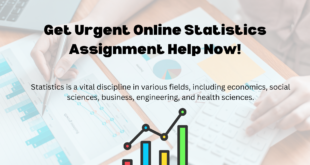Effective event marketing is the cornerstone of a successful event, whether you’re hosting a corporate conference, trade show, or virtual summit. With so much competition in the event industry, organizers need strategic approaches that cut through the noise, capture attention, and drive engagement. In this blog, we’ll dive into three key event marketing strategies that can help you stand out and make your event a success.
1. Leverage Data-Driven Marketing
In the digital age, data is one of the most valuable resources for event organizers. Leveraging data-driven marketing strategies can ensure that every decision you make is backed by real insights, leading to better results and improved return on investment (ROI). Here’s how to harness the power of data for your event marketing:
Audience Segmentation
Understanding your target audience is key to tailoring your event marketing efforts. Event organizers should segment their audience based on various factors such as:
- Demographics (age, location, job title)
- Behavior (past event attendance, purchasing behavior)
- Interests (industry trends, relevant topics)
By segmenting your audience, you can create personalized marketing campaigns that resonate with specific groups, increasing the likelihood of engagement. For example, a tech conference might have different segments such as software engineers, product managers, and investors. Tailoring messaging to each group ensures that the content appeals to their unique interests.
Behavioral Analytics
Tracking attendee behavior through tools like Google Analytics, email marketing platforms, or event apps can provide deep insights into how your audience interacts with your marketing materials. These insights allow you to make informed decisions, such as:
- Optimizing marketing channels: By identifying which platforms (social media, email, paid ads) generate the most engagement, you can allocate your resources more effectively.
- Refining content: Data on content interaction, such as click-through rates and engagement metrics, help you understand what resonates with your audience and what doesn’t. Adjust your messaging to reflect the content that gets the best response.
Personalization at Scale
With modern marketing tools, event organizers can easily personalize marketing efforts at scale. By utilizing CRM platforms or email automation tools, you can send personalized emails, targeted ads, or customized landing pages based on each attendee’s past interactions or stated preferences.
For instance, you could send personalized invitations that reference past events the attendee has attended, or offer customized discounts based on their interests. Personalization fosters a sense of connection and significantly increases the likelihood of event registration.
2. Build a Multi-Channel Marketing Strategy
With audiences spread across different platforms and devices, event organizers must implement a multi-channel marketing strategy to effectively reach and engage their target audience. A successful multi-channel approach ensures that your event is visible and top of mind, no matter where potential attendees are. Here’s how to build an effective multi-channel strategy:
Email Marketing
Email remains one of the most effective channels for event promotion. With the ability to deliver targeted messages directly to your audience’s inbox, it’s a powerful tool for driving registrations, sharing updates, and nurturing leads.
Key email marketing tactics:
- Segmented email campaigns: Send tailored messages to different audience segments to boost relevance and engagement.
- Drip campaigns: Implement an automated email series that gradually builds anticipation, starting from initial awareness to reminders and last-minute registration pushes.
- Event updates and reminders: Keep attendees informed about key event details, such as agenda announcements, speaker additions, or special promotions, to maintain excitement leading up to the event.
Social Media Marketing
Social media platforms are vital for building buzz and expanding your event’s reach. Event organizers should craft platform-specific campaigns that leverage the strengths of each social channel.
Key social media tactics:
- Event hashtags: Create a unique, memorable hashtag for your event and encourage attendees and speakers to use it across their social posts. This fosters community engagement and creates a digital footprint for your event.
- Influencer partnerships: Collaborate with industry influencers or thought leaders to promote your event. Their endorsements can amplify your message and reach new audiences.
- Live updates: Use live features (Instagram Stories, LinkedIn Live, etc.) to broadcast event teasers, behind-the-scenes moments, or Q&A sessions with speakers. This keeps your audience engaged in real time and builds excitement.
Paid Advertising
Paid ads are a great way to extend your reach, especially if you want to target specific demographics or audience interests. Event organizers can run ads on platforms like Google, Facebook, LinkedIn, and Instagram to promote their event to a broader yet targeted audience.
Key paid advertising tactics:
- Retargeting ads: Use retargeting to show ads to people who visited your event page but didn’t register. These ads serve as reminders and can lead to a higher conversion rate.
- Lookalike audiences: Many platforms offer lookalike audience features, which allow you to target people who have similar characteristics to your existing attendees or followers. This helps you reach potential attendees who are more likely to be interested in your event.
- Video ads: Video is one of the most engaging content formats. Use video ads to showcase highlights from past events, introduce key speakers, or demonstrate what attendees can expect.
Event Websites and Landing Pages
Your event website or landing page acts as the central hub for all event-related information and registration. A well-designed event page not only serves as a marketing tool but also makes the registration process seamless.
Key tactics for optimizing event pages:
- Clear CTAs: Ensure your call-to-action (CTA) buttons, such as “Register Now” or “Buy Tickets,” are prominent and easy to find.
- Mobile optimization: Ensure that your event page is mobile-friendly, as many potential attendees will visit your page via their smartphones.
- Incorporate testimonials: Adding testimonials from past attendees or speakers builds credibility and trust, helping to convince potential attendees to register.
3. Foster Engagement Through Content Marketing
Content marketing is a long-term strategy that helps build trust and authority while driving awareness and interest for your event. By providing valuable and relevant content, event organizers can engage their audience and generate excitement before, during, and after the event.
Pre-Event Content
Creating anticipation and excitement for your event is crucial. High-quality, engaging content can draw attention to your event and encourage people to register.
Key pre-event content ideas:
- Blog posts and articles: Write informative blog posts related to your event’s theme, key topics, or featured speakers. This can attract organic traffic to your event page and boost registrations.
- Speaker interviews: Publish video or written interviews with your event’s speakers or panelists. These interviews offer insights into the event’s content and allow attendees to learn more about the experts they’ll hear from.
- Teaser videos: Create short, captivating teaser videos that highlight event features, such as the venue, key speakers, or exclusive activities. These videos can be shared across social media, emails, and your event website.
During the Event Content
During the event, content plays a vital role in maintaining engagement and keeping attendees informed. Real-time content distribution helps create a sense of inclusivity and excitement, both for attendees and those following the event remotely.
Key during-event content ideas:
- Live streaming: For virtual or hybrid events, live-stream key sessions, panels, or presentations to engage a broader audience. Promote these streams on social media and your event website to increase viewership.
- Live-tweeting: Keep the conversation going by live-tweeting key takeaways, quotes, or moments from sessions. Encourage attendees to participate by using the event hashtag.
- Social media stories: Share highlights, behind-the-scenes moments, or interviews with speakers and attendees on Instagram Stories, LinkedIn Stories, or Facebook Stories to maintain excitement throughout the event.
Post-Event Content
The work doesn’t end when the event concludes. Post-event content is essential for keeping the momentum going and maintaining engagement with attendees, especially if you plan to host similar events in the future.
Key post-event content ideas:
- Recap blogs: Write a summary of the event’s key moments, highlights, and takeaways. Include quotes from speakers, attendee feedback, and photos or videos to illustrate the event’s success.
- On-demand video content: Offer recordings of key sessions or presentations for attendees to access post-event. This not only adds value for attendees but also extends the event’s lifecycle.
- Event survey and feedback: Send a post-event survey to gather feedback from attendees. Use this feedback to improve future events and demonstrate to your audience that their opinions matter.
Conclusion
Event marketing is an evolving landscape, and staying ahead requires a strategic, multi-faceted approach. By leveraging data-driven marketing, employing a multi-channel strategy, and fostering engagement through content, event organizers can create a cohesive and powerful event marketing plan that drives awareness, attendance, and engagement. Each strategy is designed to work in harmony, ensuring your event reaches the right audience, delivers value, and leaves a lasting impact.
 Our Gateway to Insightful Blogging Exploring Ideas, Sharing Knowledge, Inspiring Minds
Our Gateway to Insightful Blogging Exploring Ideas, Sharing Knowledge, Inspiring Minds



